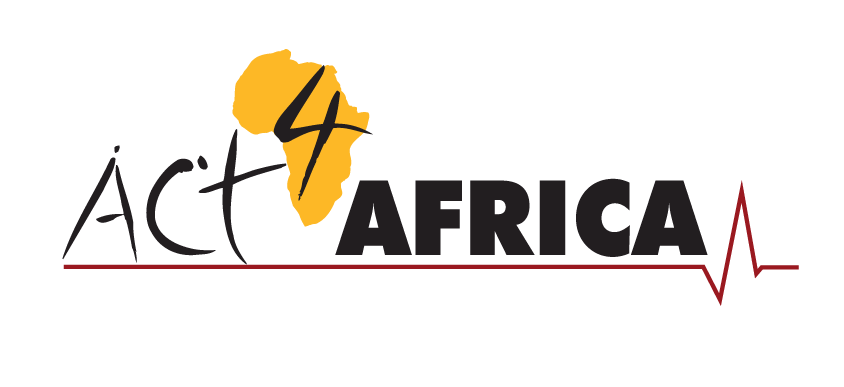
Whistleblowing Policy
- Introduction
a. Act4Africa is committed to the highest standards of openness, probity and accountability
b. An important aspect of accountability and transparency is a mechanism to enable staff and other members of the Act4Africa to voice concerns in a responsible and effective manner
c. It is a fundamental term of every contract of employment that an employee will faithfully serve his or her employer and not disclose confidential information about the employer’s affairs. Nevertheless, where an employee or volunteer discovers information which they believe shows serious malpractice or wrongdoing within the organisation then this information should be disclosed internally without fear of reprisal, and there should be arrangements to enable this to be done independently of line management
d. The Public Interest Disclosure Act gives legal protection to employees against being dismissed or penalised by their employers as a result of publicly disclosing certain serious concerns
e. Act4Africa has endorsed the provisions set out below to ensure that no members of staff or volunteers should feel at a disadvantage in raising legitimate concerns
f. It should be emphasised that this policy is intended to assist individuals who believe they have discovered malpractice or impropriety. It is not designed to question financial or business decisions taken by Act4Africa nor should it be used to reconsider any matters which have already been addressed under harassment, complaint, disciplinary or other procedures
g. Act4Africa considers this policy and the support it offers employees to be of central importance: as such, training in this Policy is mandatory for all new employees.
2. Scope of Policy
a. This Policy is designed to enable employees of Act4Africa to raise concerns internally at a high level and to disclose
information which the individual believes shows malpractice or impropriety
b. This policy is intended to cover concerns which are in the public interest and may at least initially be investigated separately but might then lead to the invocation of other procedures e.g. disciplinary
c. These concerns could include:
- Safeguarding issues and concerns;
- Financial malpractice or impropriety or fraud
- Failure to comply with a legal obligation or Statutes
- Dangers to Health & Safety or the environment
- Criminal activity
- Improper conduct or unethical behaviour
- Attempts to conceal any of these
3. Safeguards
a. Protection – this policy is designed to offer protection to those employees of Act4Africa who disclose such concerns provided the disclosure is made:
- in good faith;
- in the reasonable belief of the individual making the disclosure that it tends to show malpractice or impropriety; and
- to an appropriate person (see below)
- It is important to note that no protection from internal disciplinary procedures is offered to those who choose not to use the procedure. In an extreme case, malicious or wild allegations could give rise to legal action on the part of the persons complained about.
b. Confidentiality – Act4Africa will treat all disclosures made under this Policy in a confidential and sensitive manner. The identity of the individual making the allegation may be kept confidential so long as it does not hinder or frustrate any investigation. However, the investigation process may reveal the source of the information and the individual making the disclosure may need to provide a statement as part of the evidence required.
c. Anonymous Allegations – this policy encourages individuals to put their name to any disclosures they make. Concerns expressed anonymously may be less credible, but they will be considered by Act4Africa unless there is a clear reason not to. In exercising this discretion, the factors to be taken into account will include:
- The seriousness of the issues raised
- The credibility of the concern
- The likelihood of confirming the allegation from attributable sources
d. Untrue Allegations – In making a disclosure an individual should exercise due care to ensure the accuracy of the information. However, if an individual makes an allegation in good faith which is not confirmed by subsequent investigation, no action will be taken against that individual. If, however, an individual makes malicious or vexatious allegations, and particularly if he or she persists with making them, disciplinary action may be taken against that individual.
4. Procedure for Making a Complaint
Act4Africa Team Members who wish to raise a complaint should do so in the following way:
a. Raise your concerns with your Line Manager in the first instance in either writing or in person
b. If you would prefer not to discuss your concerns with your Line Manager or you consider that your concerns are extremely serious, you should write to one of Act4Africa’s Trustees
c. Any individuals who are not employees or volunteers with Act4Africa desiring to raise a complaint should contact the Act4Africa Chair of Trustees, Martin Smedley at martin@act4africa.org.uk or call him on +44 7966 310982. OR contact the Act4Africa Executive Director Uganda, Patrick Kigongo at patrick.kigongo@act4africa.org or call him on +256 752477226.
d. Your communication should explain that you are raising your concerns as part of Act4Africa’s Whistleblowing Policy, and you should then set out all the key facts, including names of those involved and all relevant dates
e. You will be invited to a meeting at which you can discuss your concerns. You are entitled to bring someone with you to this and any subsequent meetings. That companion may be a colleague (or a trade union representative, if relevant)
f. Anyone who accompanies you will be asked to agree to keep strictly confidential the contents of the meeting including any materials disclosed and/or examined during it. This obligation of confidentiality will extend before, during and after the meeting and any following investigation that we conduct in relation to the concerns raised by you
g. Following this meeting, we will investigate the matters raised and we may request that you come to additional meetings to assist us in our efforts. We may also decide to involve relevant external (or internal) specialists to help us conduct a thorough, fair, and responsible investigation.
h.The personnel involved in this investigation will keep you informed about the progress of the investigation as far as they are able. We may not be able to share every detail of our discoveries or deliberations with you, but we will always endeavour to reassure you, as best as we can, of the fact that we are taking your concerns seriously and that we are conducting a responsible investigation.
i. It is possible that the outcome of our investigations will not be one that you find satisfactory. If this happens, you are entitled to complain to the Chair of the Trustees and request a review of what has been done and concluded.
j. If you have raised a concern in good faith, our process and all those involved in giving effect to it will support and protect you. However, if a false concern is raised with us in bad faith (e.g. for malicious reasons), we will invoke our disciplinary policy and you may be subject to disciplinary action.
5. Procedures for Making a Disclosure
a. On receipt of a complaint of malpractice, the member of staff who receives and takes note of the complaint, must pass this information as soon as is reasonably possible to the Chair of Trustees
b. The individual who investigates the issue will be known as the Investigating Officer
c. Complaints of malpractice will be investigated by the Chair of Trustees unless the complaint is against the Chair of Trustees or is in any way related to the actions of the Chair of Trustees. In such cases, the complaint should be passed to the CEO or COO for referral
d. In the case of a complaint, which is any way connected with but not against the Chair of Trustees, the CEO or COO will nominate another Trustee to act as the alternative Investigating Officer
e. Complaints against the CEO or COO should be passed to the Chair of Trustees who will nominate an appropriate Investigating Officer
f. If there is evidence of criminal activity, then the police should be informed. Act4Africa will ensure that any internal investigation does not hinder a formal police investigation
g. Any complaints made under this policy which are considered to be ‘serious harm’ should be reported to the Charity Commission in line with the guidance found at https://www.gov.uk/guidance/report-serious-wrongdoing-at-a-charity-as-a-worker-or-volunteer#what-to-report-to-the-charity-commission.
6. Timescales
a. Due to the varied nature of these sorts of complaints, which may involve internal / external investigators and / or the police, it is not possible to lay down precise timescales for such investigations. The Investigating Officer should ensure that the investigations are undertaken as quickly as possible without affecting the quality and depth of those investigations
b. The Investigating Officer, should as soon as practically possible, send a written acknowledgement of the concern to the Complainant and thereafter report back to them in writing the outcome of the investigation and on the action that is proposed. If the investigation is a prolonged one, the Investigating Officer should keep the Complainant informed, in writing, as to the progress of the investigation and as to when it is likely to be concluded.
c. All responses to the Complainant should be in writing and sent to their home address marked “Confidential”.
7. Investigating Procedure
The Investigating Officer should follow these steps:
a. Full details and clarifications of the complaint should be obtained
b. The Investigating Officer should inform the member of staff against whom the complaint is made as soon as is practically possible. The member of staff will be informed of their right to be accompanied by a trade union or work colleague at any future interview or hearing held under the provision of these procedures. At the discretion of the Investigating Officer and dependant on the circumstances of the complaint an alternative representative may be allowed e.g. the individual’s legal representative
c. The Investigating Officer should consider the involvement of the Act4Africa auditors and the Police at this stage and should consult with the Chair of Trustees and CEO or COO as appropriate
d. The allegations should be fully investigated by the Investigating Officer with the assistance where appropriate, of other individuals / bodies
e. A judgement concerning the complaint and validity of the complaint will be made by the Investigating Officer. This judgement will be detailed in a written report containing the findings of the investigations and reasons for the judgement.
f. The report will be passed to the Chair of Trustees and CEO or COO as appropriate
g. The Chair of Trustees and CEO or COO as appropriate will decide what action to take. If the complaint is shown to be justified, then they will invoke the appropriate Act4Africa procedures
h. The Complainant should be kept informed of the progress of the investigations and, if appropriate, of the final outcome
If appropriate, a copy of the outcomes will be used to enable a review of Act4Africa procedures
i. If the Complainant is not satisfied that their concern is being properly dealt with by the Investigating Officer, they have the right to raise it in confidence with the Chief Executive / Business Owner / Chairman, or one of the designated persons described above
j. If the investigation finds the allegations unsubstantiated and all internal procedures have been exhausted, but the Complainant is not satisfied with the outcome of the investigation, Act4Africa recognises the lawful rights of employees and ex-employees to make disclosures to prescribed persons or body (e.g. the Health and Safety Executive). A full list of prescribed people and bodies can be found on the Government Website (www.gov.uk).
Confirmed by the Trustees 27 August 202

